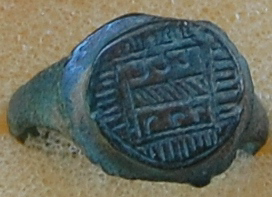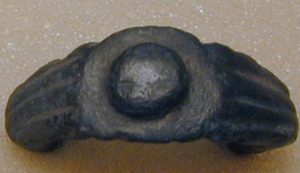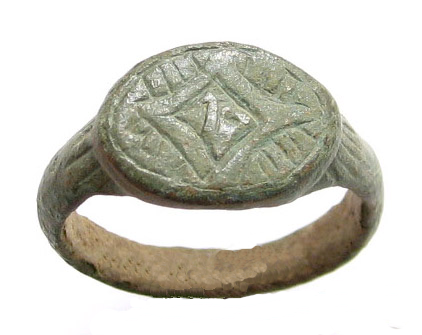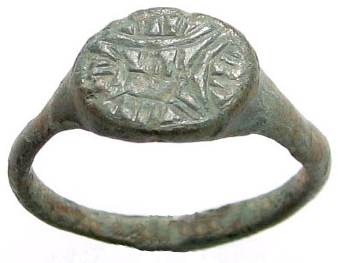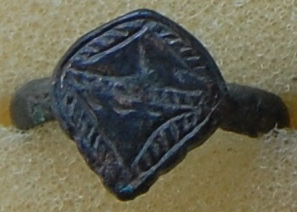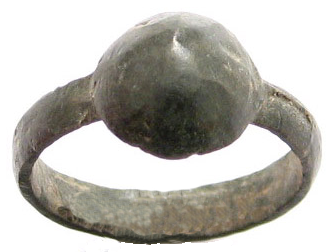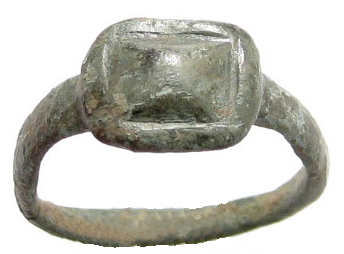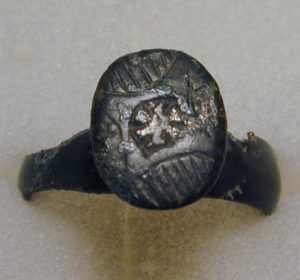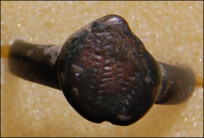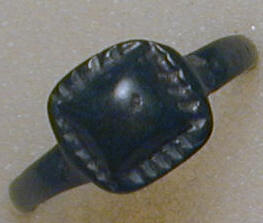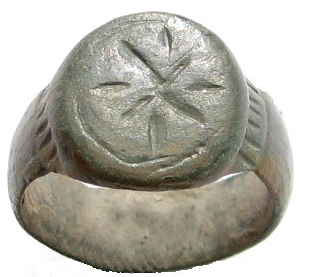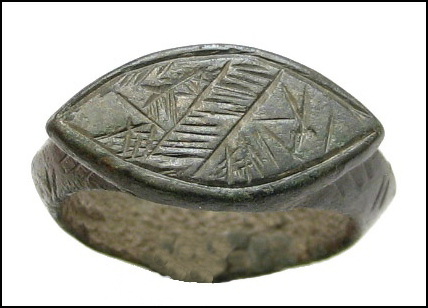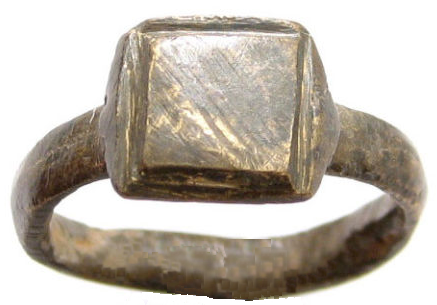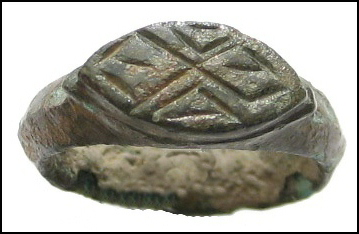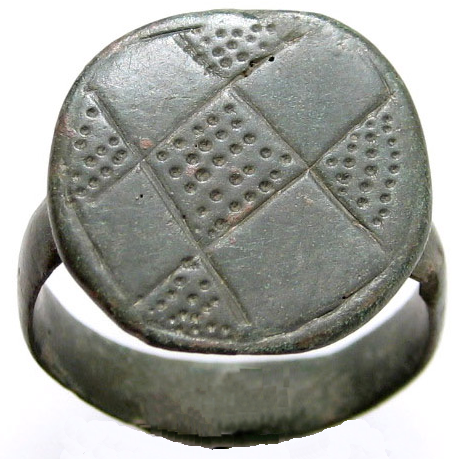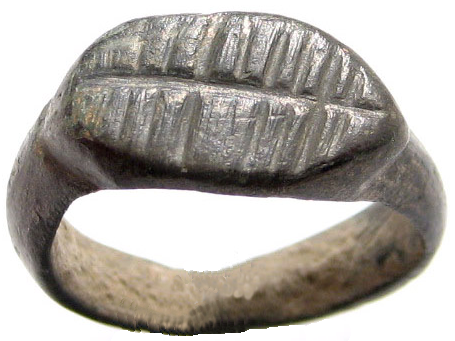Roman Rings
Roman/Byzantine Bronze Rings
It is believed that ancient Egyptians viewed the ring, a never ending metal band, as representing eternal love and as having supernatural power. Rings were worn on the 4th finger of the left hand because they thought the “vena moris” or the “vein of love” ran through it, to the head.
Then the Romans came along to play their role in history by introducing the betrothal ring. It was originally a plain iron hoop. When a lady accepted it, it became a binding legal agreement. She was no longer free, and was bound to be obedient to her husband. The gentry would wear an iron ring while indoors and a gold band while outside. By the 4th century AD inscriptions were being placed on the inside of betrothal rings.
Just as today, jewelry was an important part of Roman life and culture. Jewelry reflected then as now the wealth and status of the wearer. In the Roman Republic, (before 44 BC), by law only citizens could wear rings. And a male citizen could only wear one ring, and that ring was made of iron. In the early empire only Patricians, (the upper class of citizens), could wear gold rings. Other citizens and freemen could wear silver or bronze. Slaves were not allowed to wear rings at all. As the empire expanded the laws and customs regarding jewelry were relaxed. Clothing was dictated by social class, and changed little for over 1000 years. Consequently jewelry and hairstyles were the dominant means of expressing a Roman’s social and economic status. In the later empire some people wore rings on every finger, and even on their toes! The normal everyday Roman was not this ostentatious. They wore only one or two rings, usually of bronze. Since Roman clothing had no pockets, one popular ring was the key ring. Unlike the modern key ring which holds a group of keys together, a Roman key ring was a finger ring containing an actual key, possibly to a strongbox where the family valuables were stored, or maybe even to the door of the wearer’s house.
Accurate dating of ancient rings is more difficult than dating coins, which often can be attributed to an exact year, and sometimes even the city in which it was minted. Dating rings must take into account the shape and style, the inscription or symbols contained on it, and the environment in which it was found. For example, earlier rings are simpler in design. Earlier rings contain symbols of the ancient Roman gods. Rings of the mid to late empire may contain a simple Christian cross, or star cross. Rings of the Byzantine (Eastern Roman Empire) have more intricate devices cast into the bezel and band, and frequently contain a representation of the cross of Constantine or a Byzantine cross. The rings offered below are from 1500 to 2000 years old and are guaranteed to be authentic.

